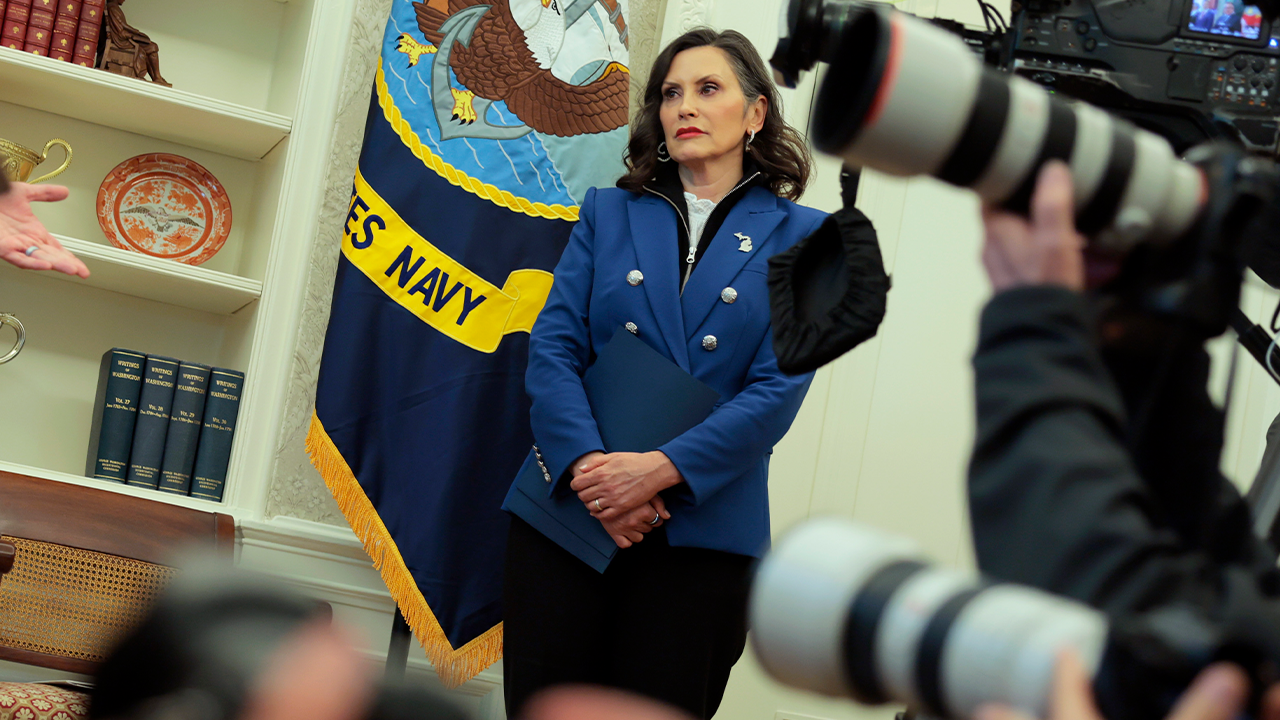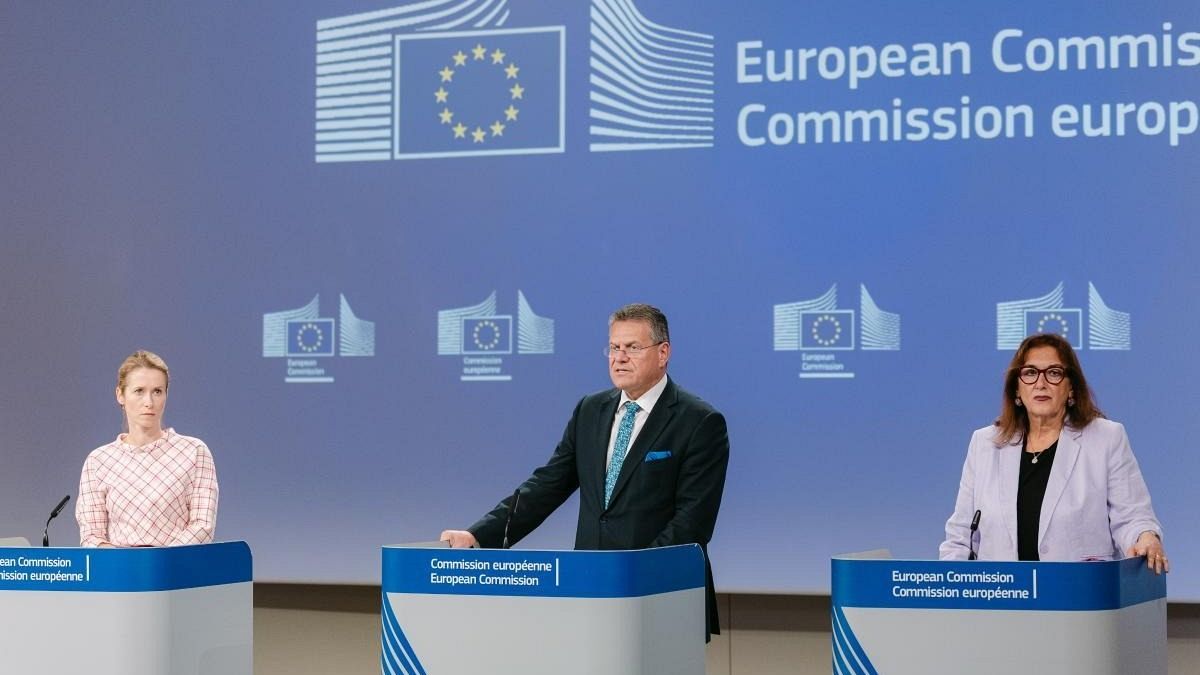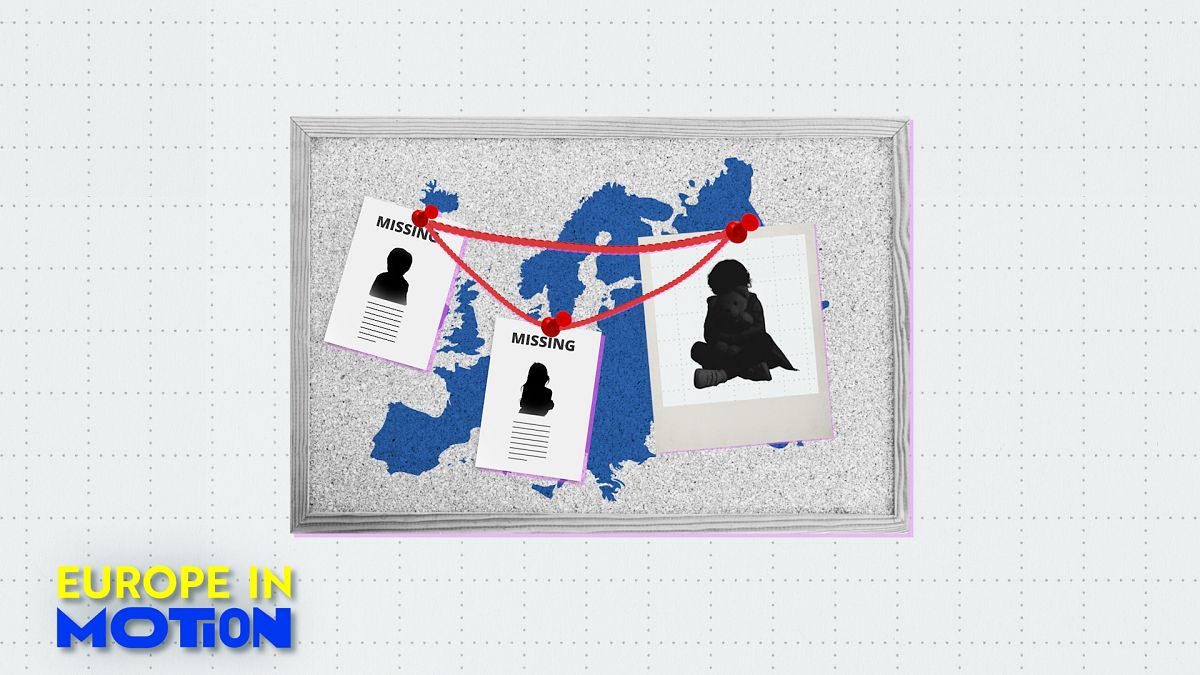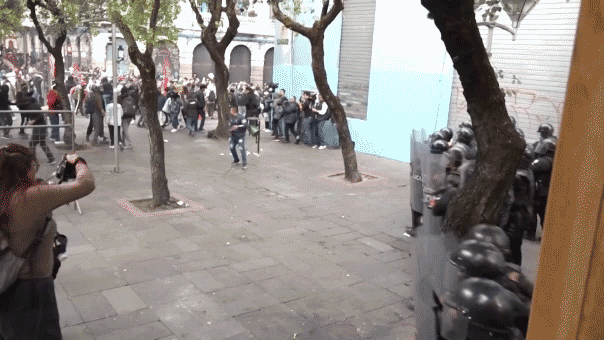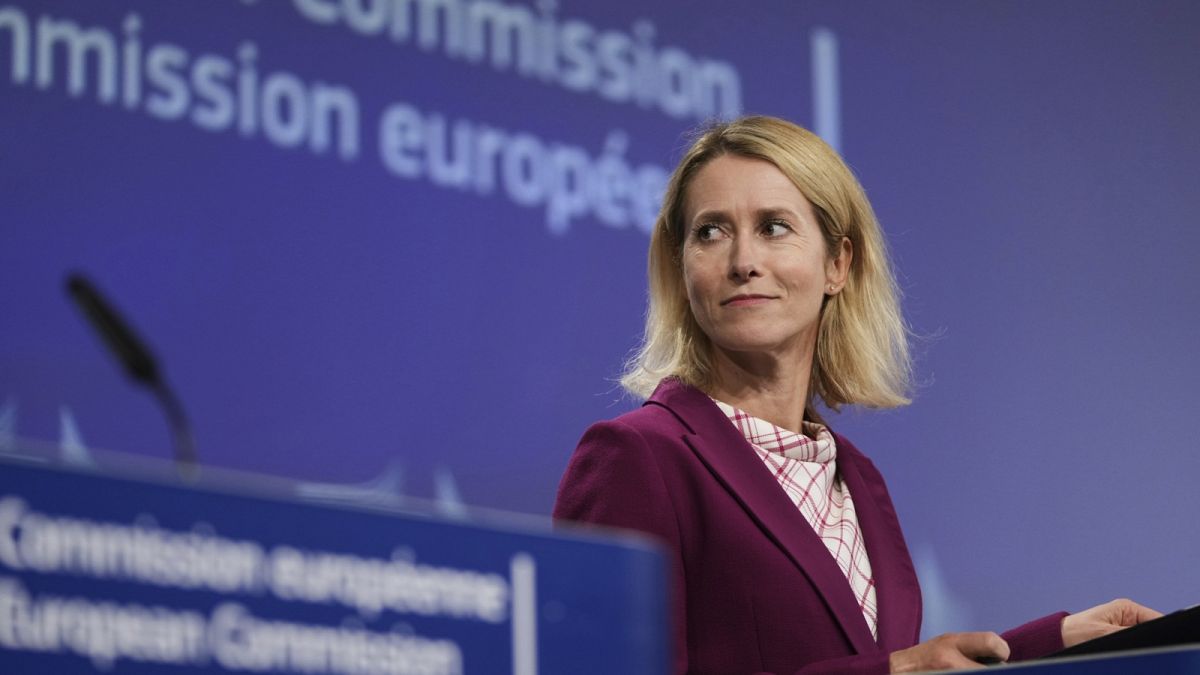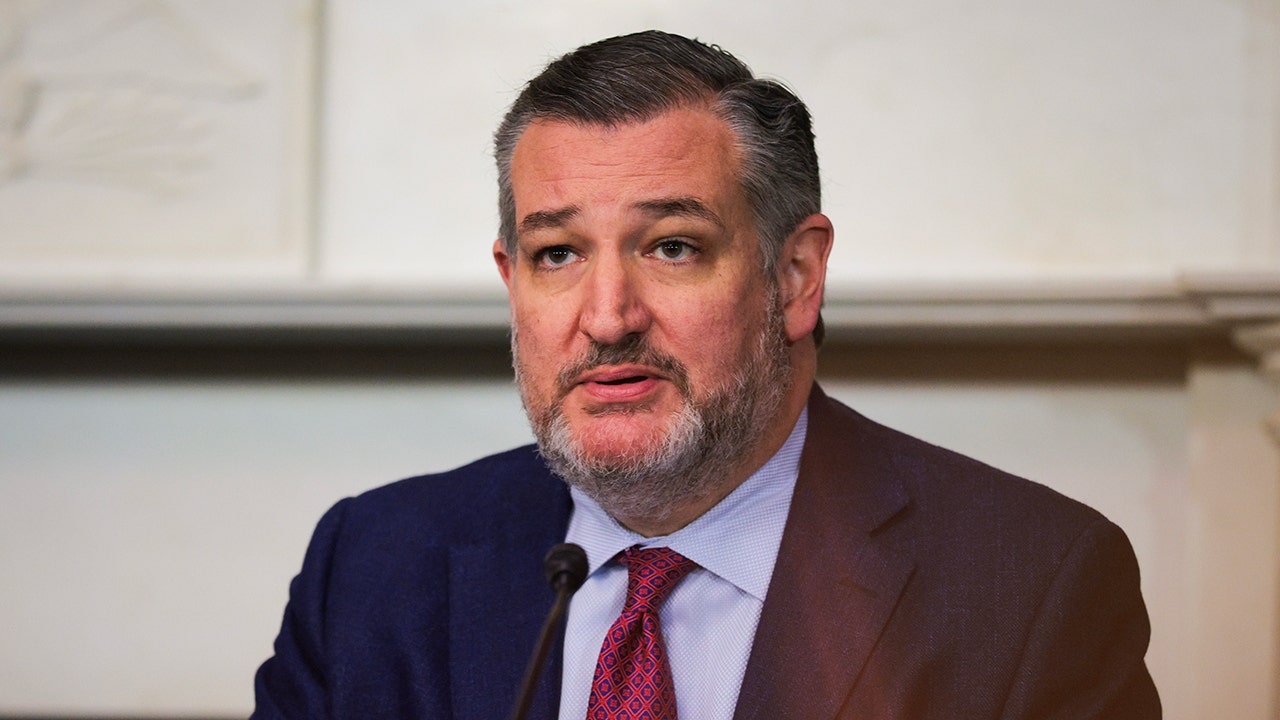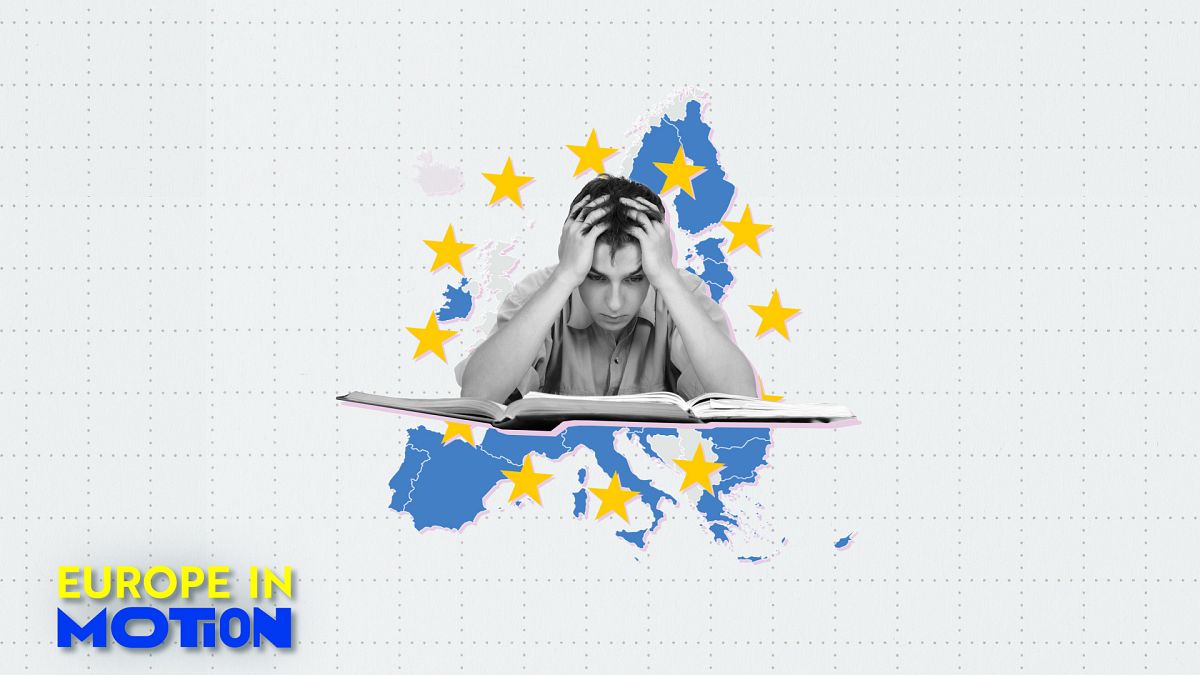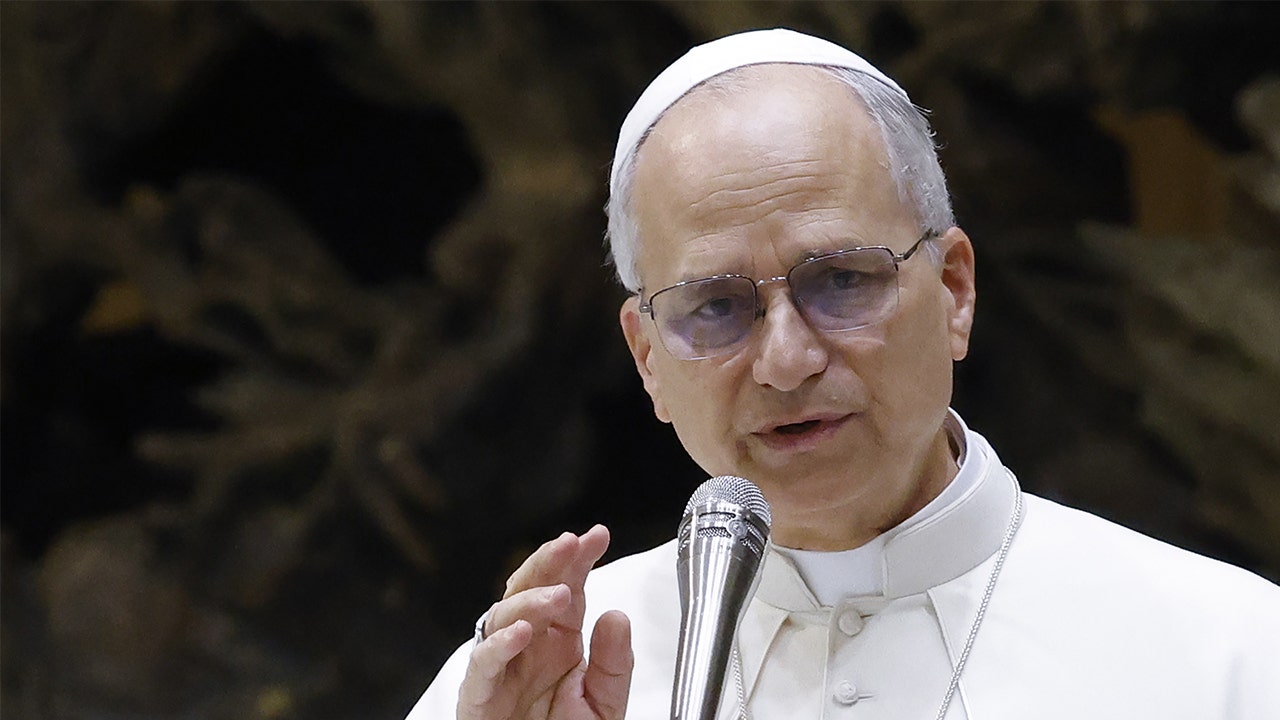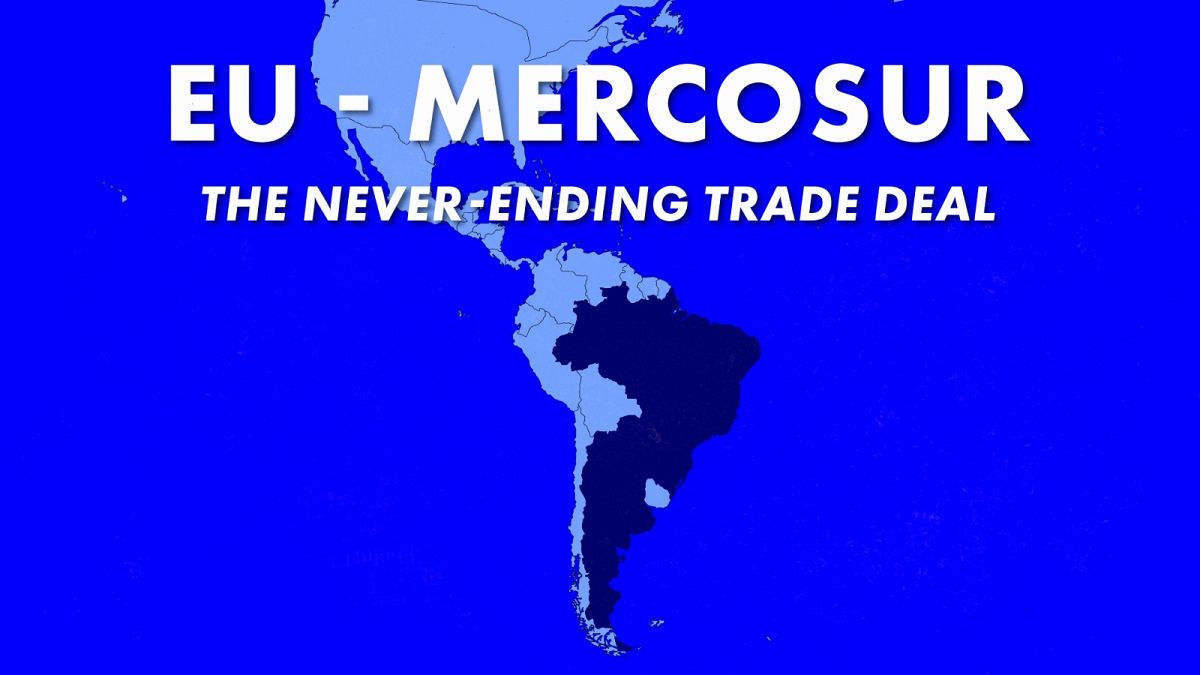ADVERTISEMENT
The EU’s proposal to suspend the bloc’s trade preferences with Israel and increase tariffs on Israeli goods is likely to meet resistance, especially from Germany and Italy.
But if the EU 27 adopts the plan, initially announced by Commission President Ursula von der Leyen in her state of the Union speech, the restrictions would be a blow for Israel as the EU is the country’s biggest trading partner, accounting for 32% of its total trade in goods with the world in 2024.
At a press conference on Wednesday, the EU’s trade commissioner Maroš Šefčovič presented the proposals to end Israel’s preferential regime as a “carefully-considered response to an increasingly urgent situation”, adding that the latest Israeli military strikes and the current humanitarian crisis in Gaza was “unimaginable”.
Šefčovič was joined by the EU’s top diplomat, Kaja Kallas, who made clear that the aim of the proposals was “not to punish Israel”, so much as “to improve the situation in Gaza.”
But how are these proposals going to impact Israel? And how significant are they?
No ban on trade
The EU’s plan does not ban trade with Israel. It wouldn’t affect the 60% of Israeli exports that already benefit from a 0% duty under the “Most Favoured Nation” status, which allows Israel to receive the same trade benefits from the EU as other most favoured trading partners under World Trade Organization rules.
But it would suspend preferential EU treatment Israel has benefited from since 2000, by imposing tariffs on 37% of Israeli exports to the EU. The most exposed sectors from the EU side would include machinery, aircraft-related goods, medical devices and pharmaceutical products, Šefčovič said.
The Commissioner made clear that the new measures would expose EU imports from Israel to an additional €227 million in duties over a year.
The new tariffs would cover “all the meaningful trade” one senior Commission official said, but wouldn’t include provisions on capital movements, as “when you trade, you also need to make sure that money can flow,” the official said. Certain provisions on customs would also be left out from the new restrictions because, “indeed, we need to make sure that customs continue to operate,” the official said.
What’s Israel’s preferential treatment?
The EU’s preferential treatment in trade with Israel is laid out in the EU-Israel Association agreement, which was signed at a time when the EU had pushed to reinforce its ties with Mediterranean countries.
The legal tool establishing a free Trade Area with preferential tariff treatment between the bloc and Tel Aviv covers many areas, from services to intellectual property. As part of the deal there are for example “reciprocal liberalisation measures” on agricultural products but also “removal of trade barriers” on pharmaceuticals.
The only restriction (not included in the agreement) concerns goods coming from Israeli settlements in the Occupied Palestinian territories, which are deemed illegal by the EU and do not benefit from any preferential tariff treatment.
Significant or pointless?
The Commission’s proposal to end Israel’s preferential treatment would require a qualified majority in the Council where the support of Germany and Italy seems very unlikely. They are part of a group of countries that have special ties with Israel and are not eager to sanction the country.
But regardless of its adoption, the plan has triggered mixed reactions in Brussels.
“Beyond the economic cost, the political signal is very significant,” said Martin Konečný, who heads the think tank “European Middle East Project” in Brussels. “The European Commission and Israel’s deep allies like Von der Leyen are now willing to use serious economic sticks, something that was completely taboo in the past,” he said.
Israel, Konečný added, will have to “face a future of being progressively cut out from a major Western political bloc and its largest export market.”
Others see the EU’s partial suspension of trade as pointless and counterproductive.
“Should Israel be punished by suspending trade agreements – a measure that would hit the population rather than the government?” asked Hildegard Bentele, a German conservative MEP and Chairwoman of the European Parliament Delegation for relations with Israel.
However, Bentele acknowledged that given the disastrous humanitarian situation in Gaza, “trade restrictions should only be considered if Israel, the United Nations, and humanitarian organisations fail to meet jointly agreed targets for humanitarian aid.”
Jan Lipavský, the Minister of Foreign Affairs of the Czech Republic posted on X that following a call with his Israeli counterpart Gideon Sa’ar, he had “assured him that Czechia is and will remain clearly opposed” to those measures.
“It is not in the EU’s interest to limit its influence in the region,” Lipavský said.
Meanwhile Sa’ar himself described the Commission recommendations as “morally and politically distorted”, adding in a post on X that: “Israel will continue to struggle, with the help of its friends in Europe, against attempts to harm it while it is in the midst of an existential war.”
Read the full article here




